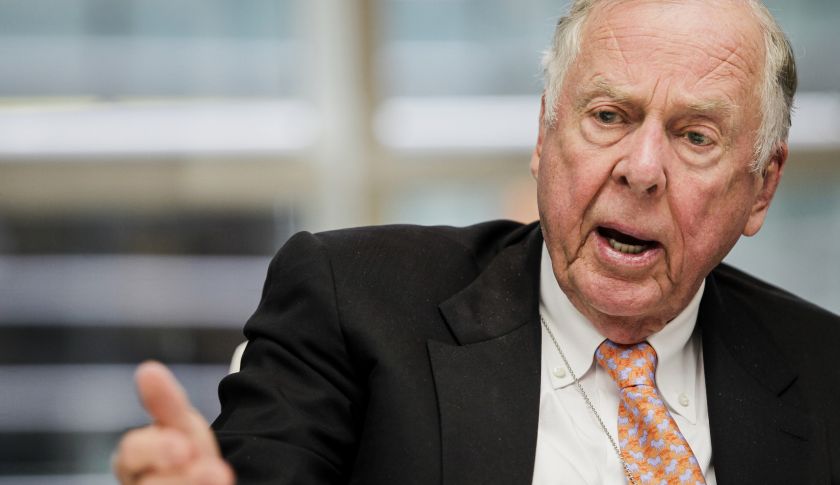
![]()
by Rakesh Upadhyay, Oilprice.com
February 10, 2016
Legendary oil man takes President to task.
This piece originally appeared on Oilprice.com.
The Obama administration’s proposed $10.25 per barrel oil tax adds up to approximately $32 billion a year, and critics are coming out of the woodwork in defense of both the oil industry and end users who would foot the bill for transportation system reforms — but it may be a moot point since the effort will simply be killed off by Congress.
At the end of the day, this proposal is simply meant to start a discussion and possibly add to the Obama environmental legacy.
The proposal has sparked immediate backlash, with critics blasting it as an impossible production tax, the death knell for the already struggling oil industry, and an unfair policy that would render gas at the pumps more expensive for consumers.
Oil tycoon T. Boone Pickens has sensationally dubbed the Obama proposal “the dumbest idea ever.”
The $32 billion tax per year would be consistent with a production tax, tweeted Ed Crooks, the energy editor of The Financial Times.
Alaska Senator Lisa Murkowski, chairman of the Senate Energy and Natural Resources Committee, likewise criticized the tax, stating, as reported by Reuters: “The President is now apparently proposing yet another way of damage to our nation’s oil industry”.
According to Steven Kopits, Managing Director of Princeton Energy Advisors, at today’s prices there would be no material impact on either U.S. mobility or the economy. However, if WTI were to hit $115 per barrel, an additional $10 per barrel tax could push the economy towards a recession.
Federal gas taxes have not been raised since 1993, and with gas prices at an all-time low, such a proposal will be fairly easy to justify at the pump, and is unlikely to cause much of a fuss for end users. Consumers would pay an additional 22-25 cents per gallon of gas—with the final price still well under gas prices a year or two ago.
According to the American Coalition for clean coal electricity report of June 2015, the lower and middle-income families, which represent 48 percent of the nation’s households, spend an estimated average of 17 percent of their after-tax income on residential and transportation energy. If we consider the households earning less than $30,000 before taxes, the expense rises to 23 percent of their after-tax family incomes, without considering any energy assistance programs.
If gas prices should climb higher, the proposed increase would further strain the budgets of the poor, whereas the rich are unlikely notice the price difference between $30 and $40 per barrel—or if gas prices should climb—between $75 and $85 a barrel. It should be noted, however, that the Obama proposal would redirect 15 percent of the reveneus to poorer households to offset higher energy costs.
On the flip side of this emerging discussion, there are also economists who believe a tax on fossil fuels will benefit the U.S. economy. They talk about taxing “negative externalities” that may lead to “market failure.’’
Harvard’s Gregory Mankiw notes that there are a “host of side effects’’ associated with oil and gas production and consumption, and economists view these negative side effects as a “kind of market failure” that needs to be addressed.
So will this proposal ever see the light of Congressional day? Not likely. History suggests it will be a major challenge. The first budget proposal of the Obama Administration sought to eliminate all remaining tax breaks for oil and gas producers, which would raise another $31 billion in revenue between 2010 and 2019, according to Reuters. That proposal has been shot down seven times already. For the latest budget proposal, Republicans are departing from decades of tradition by not even inviting the White House’s budget director to attend Congressional hearings to explain the budget.
The government taxes on fuels have largely remained unchanged since 1993, as Congress has been unable to arrive at an agreement to raise them. The current proposal of a 22-25 cents per gallon rise on top of the existing taxes is unprecedented, so most are viewing this as a legacy-maker and a discussion starter and nothing more—for now, at least.
The proposal has put the spotlight on the administration’s futuristic policy and has attracted headlines, but there is little chance that it will make it through Congress.
Read this article on Fortune.com: T. Boone Pickens On Obama Oil Tax: “Dumbest Idea Ever”
